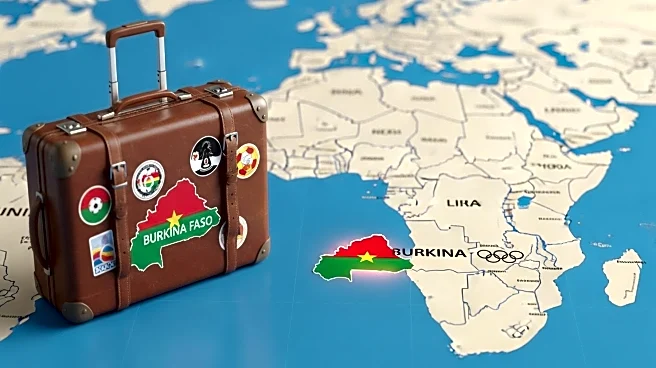What is the story about?
What's Happening?
In a recent interview, former Burkina Faso striker Aristide Bancé discussed the difficulties faced by the national team during the 2013 Africa Cup of Nations (AFCON) final against Nigeria. Bancé revealed that the team had to spend the night at the airport before the final match, which they lost 0-1. The team endured a long journey from Nelspruit to Johannesburg, covering 348.4 km, and faced adverse weather conditions that delayed their flight. This lack of rest and preparation time was a significant factor in their performance. Bancé emphasized the need for better logistical support in future tournaments, suggesting that a special plane should be arranged for the team if they reach another final.
Why It's Important?
The revelations by Bancé highlight the logistical challenges faced by African teams in international tournaments, which can impact their performance. The experience of Burkina Faso underscores the importance of adequate preparation and support for national teams, especially when competing at high levels. This situation also reflects broader issues of resource allocation and infrastructure in African sports, where teams may not have the same level of support as their counterparts from more developed regions. Addressing these challenges could improve the competitiveness of African teams on the global stage.
What's Next?
Bancé's comments may prompt the Burkina Faso Football Federation and other African sports authorities to reassess their logistical arrangements for future tournaments. Ensuring better travel and accommodation plans could enhance team performance and morale. Additionally, Bancé's call for a special plane for the team in future finals could lead to policy changes aimed at providing more robust support for national teams. This could also inspire other African nations to review their own logistical strategies to ensure their teams are well-prepared for international competitions.
Beyond the Headlines
Bancé's account sheds light on the broader issue of sports management and the need for equitable resource distribution in African football. The challenges faced by Burkina Faso in 2013 may serve as a catalyst for change, encouraging sports federations to prioritize player welfare and logistical efficiency. This could lead to a more level playing field in international competitions, where African teams can compete on equal terms with their global counterparts.

















